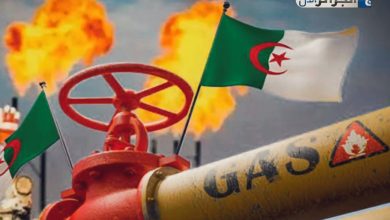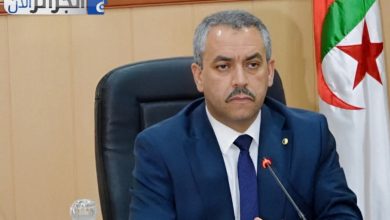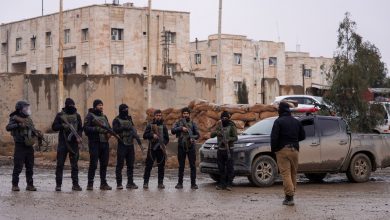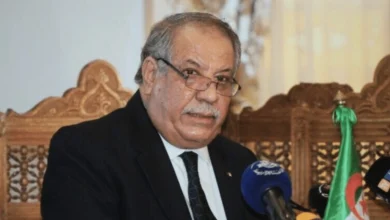Algiers – The calls for demonstrations in Algeria on October 3, issued by a group calling itself “GenZ 213” and amplified by certain Moroccan media outlets as well as the group “GenZ 212,” do not represent genuine social demands. Instead, they are part of a broader political strategy by the Moroccan regime aimed at exporting its internal crises and undermining Algeria’s national cohesion.
Morocco today faces a deep social crisis, marked by weekly protests across its cities. Moroccan youth demand an end to poverty and express anger over deteriorating economic and social conditions. Protest slogans capture this reality: “No World Cup without hospitals!”, “Bread before stadiums!”, “Social justice before football!”, and “Education and health for our children, not billions for FIFA!” These voices directly target the policy of extravagance pursued by the Makhzen, which seeks to use the hosting of the World Cup and the African Cup of Nations as a propaganda showcase for the monarchy while ignoring its people’s most basic needs.
The contrast is glaring: millions of dollars are funneled into stadiums and sports infrastructure while ordinary Moroccan families struggle to secure a daily meal. Public schools collapse under overcrowding and resource shortages, fueling high dropout rates. Youth unemployment worsens frustration and social exclusion. In healthcare, the disparities are shocking. Public hospitals lack equipment, staff, and basic services, forcing citizens into expensive private clinics. Last week’s tragic death of eight women in a maternity hospital while waiting for cesarean procedures epitomizes the collapse of Morocco’s public health system. Meanwhile, soaring prices and hopeless prospects have further ignited public anger, which is also sharpened by widespread rejection of the normalization deals with the Zionist entity, especially amid Israel’s massacres in Gaza.
Instead of confronting this structural collapse, Moroccan propaganda seeks to redirect attention to Algeria by inflating baseless protest calls, in an attempt to fabricate the illusion of instability on its eastern border.
— Algeria, a Coherent Social State —
In contrast, Algeria continues to stand as a social state with a resilient welfare model. Despite challenges, the state guarantees universal free education and healthcare, food and housing support, free textbooks for schoolchildren, subsidized housing, and initiatives to reduce poverty. Over 12 million students entered schools this year, benefiting from free meals and textbooks, embodying Algeria’s vision of equal opportunity.
Additionally, Algeria has embraced innovation by promoting startups and young entrepreneurship. Through a national innovation fund, business incubators, tax incentives, and legal frameworks recognizing startups, Algerian youth are offered the tools to transform creative projects into economic drivers. These measures stand as a testament to Algeria’s commitment to diversify its economy and empower its youth.
Healthcare remains free and universal, backed by expanded hospital networks and coverage for chronic illnesses, while massive social housing programs continue to strengthen social justice and stability. Algeria’s model of the social state is not cosmetic—it is a fortress that protects its people against poverty, exclusion, and manipulation.
— Imported and Dangerous Narratives —
The Moroccan strategy is not limited to manipulating social grievances; it also involves injecting foreign cultural symbols into the Maghreb’s social fabric to erode local identity. The choice of using Japanese anime characters, such as “One Piece,” as protest symbols by the so-called “GenZ” is neither innocent nor organic. It is a calculated attempt to exploit youth culture for political ends, stripping young Maghrebi generations of their historical and cultural identity and steering their frustrations into externally manufactured agendas.
Behind the façade of “social justice,” these campaigns conceal a project of destabilization whose primary goal is to weaken Algeria’s cohesion and undermine its unity. By promoting imported narratives, Morocco seeks to shake both Algeria and Tunisia, the two most stable Maghrebi states, through psychological, cultural, and media warfare.
But Algeria remains fully aware of these maneuvers. Guided by its institutions, its social model, and its national unity, the country remains vigilant. Far from being spontaneous, calls such as those made for October 3 are exposed for what they are: foreign-sponsored attempts at destabilization.
The answer lies in reinforcing national unity, in vigilance, and in developing Algeria’s enduring social and political model. No illusion fabricated by the Makhzen can turn into reality: Algeria is not Morocco. It possesses the political, social, and historical strength to resist foreign interference, remain united, and continue its path as a sovereign and cohesive nation.




